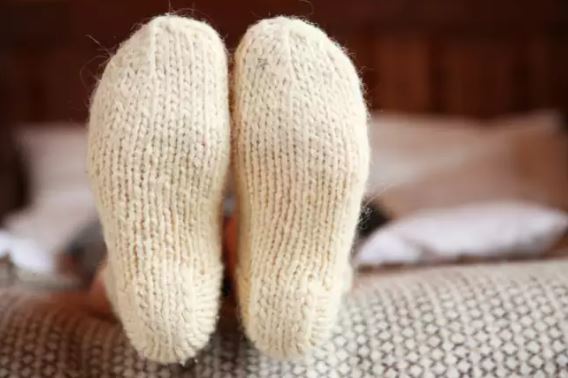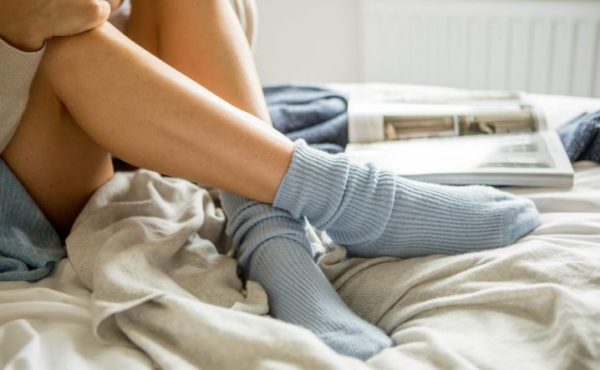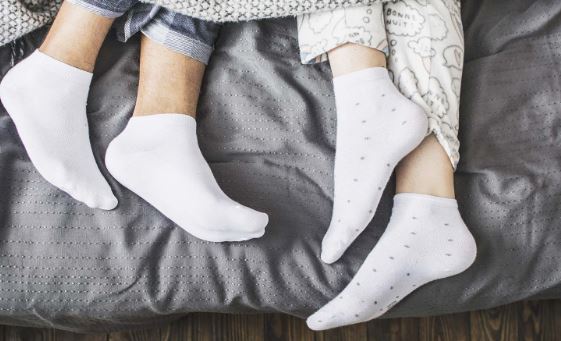Lifestyle
Do you wear socks to bed? Here’s what you need to know

Regarding nighttime customs, the topic of wearing socks to bed has generated discussions as varied as sleep inclinations.
While some people find it delightful to imagine having warm toes under the covers at night, others recoil at the thought of anything constricting their feet.
Here is all you need to know about this nighttime dilemma and learn about its unexpected advantages, possible drawbacks, and how to pick the ideal socks for a restful night’s sleep.
1. Accepting the faster sleep
You might fall asleep more quickly if you put on socks before bed, which is one of the unexpected benefits. Research conducted in 2007 discovered that persons who wore heated or regular socks went to sleep more quickly than people who wore nothing at all. The secret to the socks’ magic is their capacity to control body temperature. They do this by triggering a process called vasodilation, in which blood vessels widen, releasing heat and alerting the brain when it’s time to turn in.
2. Fighting the chill
Because socks keep the blood vessels in your fingers and toes warm, they are a lifesaver for people with conditions like Raynaud’s disease. By doing this, the extremities may stay warm, numb, and discoloured. Additionally, socks and moisturiser together can do wonders for keeping your feet smooth and hydrated if you struggle with cracked heels.
3. Handling the heat
Wearing socks to bed has advantages, but there are drawbacks as well. There’s a chance you could overheat, particularly if your socks are synthetic or excessively thick. Sweating excessively can irritate your skin and interfere with your sleep. If it gets too hot, think about using an air conditioner or fan instead of socks.
4. Hygiene matters
Wearing dirty or non-breathable socks raises the risk of fungal and bacterial infections. Athlete’s foot and cellulitis could become unwelcome bedfellows. Keep your sock game strong by choosing clean, breathable options and changing them regularly to ward off germs and odours.
5. Problems with circulation
How to choose the best socks for sleeping
When it comes to bedtime socks, opt for natural, soft, and breathable fibres like cotton, wool, or cashmere. Say no to synthetic materials such as nylon or polyester, as they can trap heat and moisture, potentially leading to infections or allergies. The perfect sleep socks should fit just right – not too loose, not too tight. Ensure you can wiggle your toes freely without feeling any pressure or constriction. Let personal preference guide your choice of sleep socks. Whether short or long, thick or thin, plain or patterned – the key is to feel cosy and relaxed.










